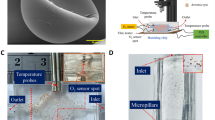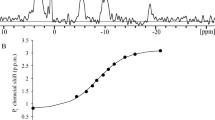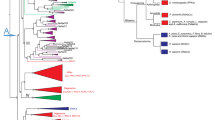Abstract
EXPOSURE of unfertilised sea urchin eggs to NH4Cl and other weak bases such as procaine or nicotine results in the activation of some of the events which normally follow fertilisation, such as the acceleration of protein synthesis and the initiation of DNA synthesis1,2. The initial events of normal fertilisation, for example, the cortical reaction and respiratory burst, are bypassed. It has been shown that fertilisation triggers a Na–H ion exchange that results in an increase in the intracellular pH and a decrease in the pH of the surrounding seawater3. There is a similar acidification of the seawater and increase in intracellular pH when sea urchin eggs are exposed to NH4Cl or procaine. This led to the suggestion that the pH changes induced by weak bases were mediated by a mechanism similar to the Na–H ion exchange. However, it had been proposed that NH4Cl worked by a simple passive diffusion mechanism, where the uncharged species of weak base diffuses into the egg and picks up an H+ ion, resulting in an increase in the intracellular pH (ref. 4). The important distinction between these two mechanisms is that if weak bases are working by a passive diffusion mechanism, bypassing the Na–H ion exchange, then their action gives direct support to the hypothesis that an increase in the intracellular pH plays a part in the onset of biosynthetic activities after fertilisation. We show here that weak bases bypass the Na–H ion exchange, cause both the internal and external pH changes directly by their passive diffusion into the egg, and that the initial increase in the rate of protein synthesis is proportional to the amount of weak base entering the egg.
This is a preview of subscription content, access via your institution
Access options
Subscribe to this journal
Receive 51 print issues and online access
$199.00 per year
only $3.90 per issue
Buy this article
- Purchase on Springer Link
- Instant access to full article PDF
Prices may be subject to local taxes which are calculated during checkout
Similar content being viewed by others
References
Epel, D., Steinhardt, R. A., Humphreys, T. & Mazia, D. Devl Biol. 40, 245–255 (1974).
Vacquier, V. D. & Brandriff, B. Devl Biol. 47, 12–31 (1975).
Johnson, J. D., Epel, D. & Paul, M. Nature 262, 661–664 (1976).
Steinhardt, R. A. & Mazia, D. Nature 241, 400–401 (1973).
Jacobs, M. H. Cold Spring Harb. Symp. quant. Biol. 8, 30–39 (1940).
Whitfield, M. J. mar. biol. Ass. U.K. 54, 565–580 (1974).
Chambers, E. L. J. exp. Zool. 197, 149–154 (1976).
Shen, S. & Steinhardt, R. A. Nature 272, 253–254 (1978).
Author information
Authors and Affiliations
Rights and permissions
About this article
Cite this article
WINKLER, M., GRAINGER, J. Mechanism of action of NH4Cl and other weak bases in the activation of sea urchin eggs. Nature 273, 536–538 (1978). https://doi.org/10.1038/273536a0
Received:
Accepted:
Issue Date:
DOI: https://doi.org/10.1038/273536a0
Comments
By submitting a comment you agree to abide by our Terms and Community Guidelines. If you find something abusive or that does not comply with our terms or guidelines please flag it as inappropriate.



